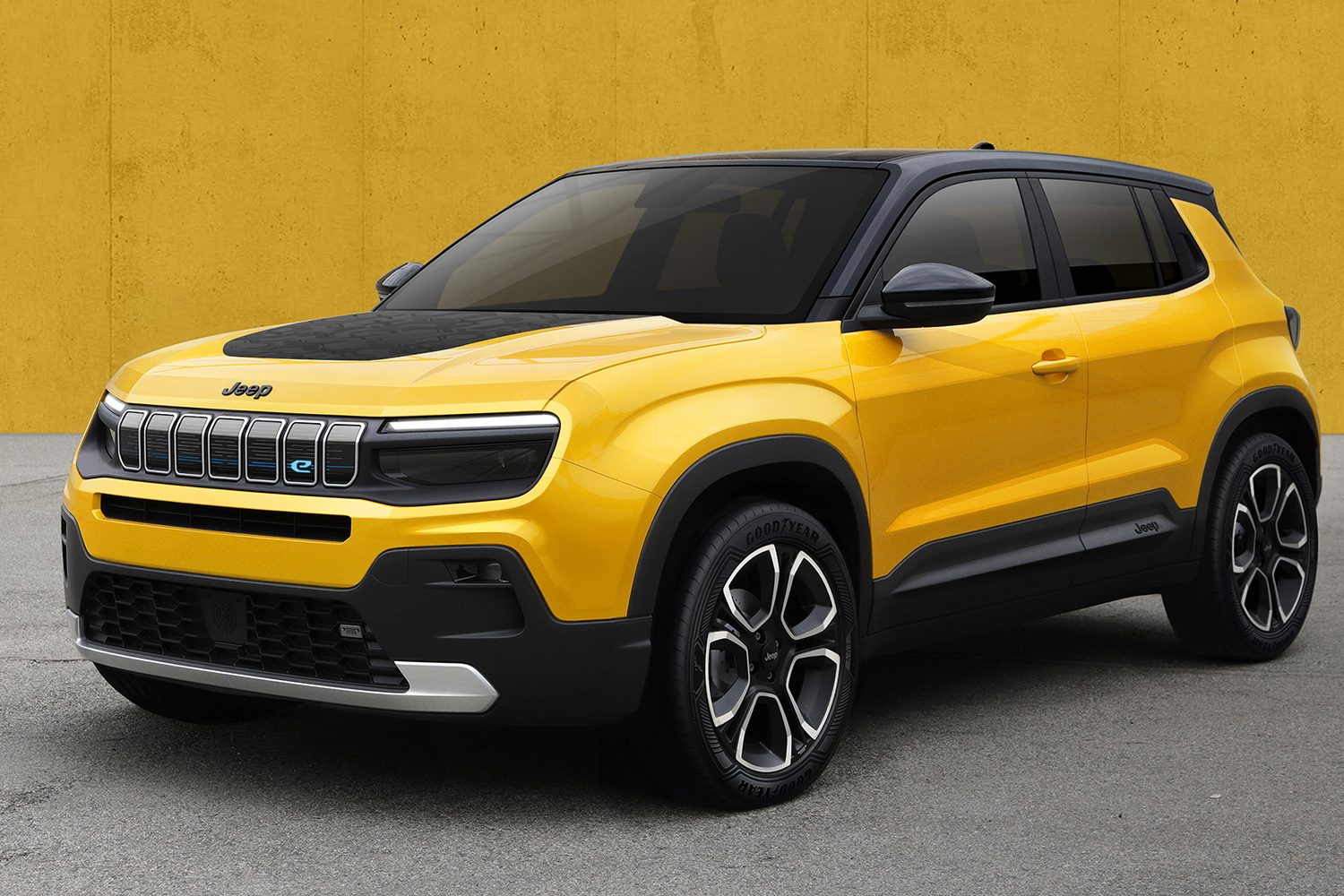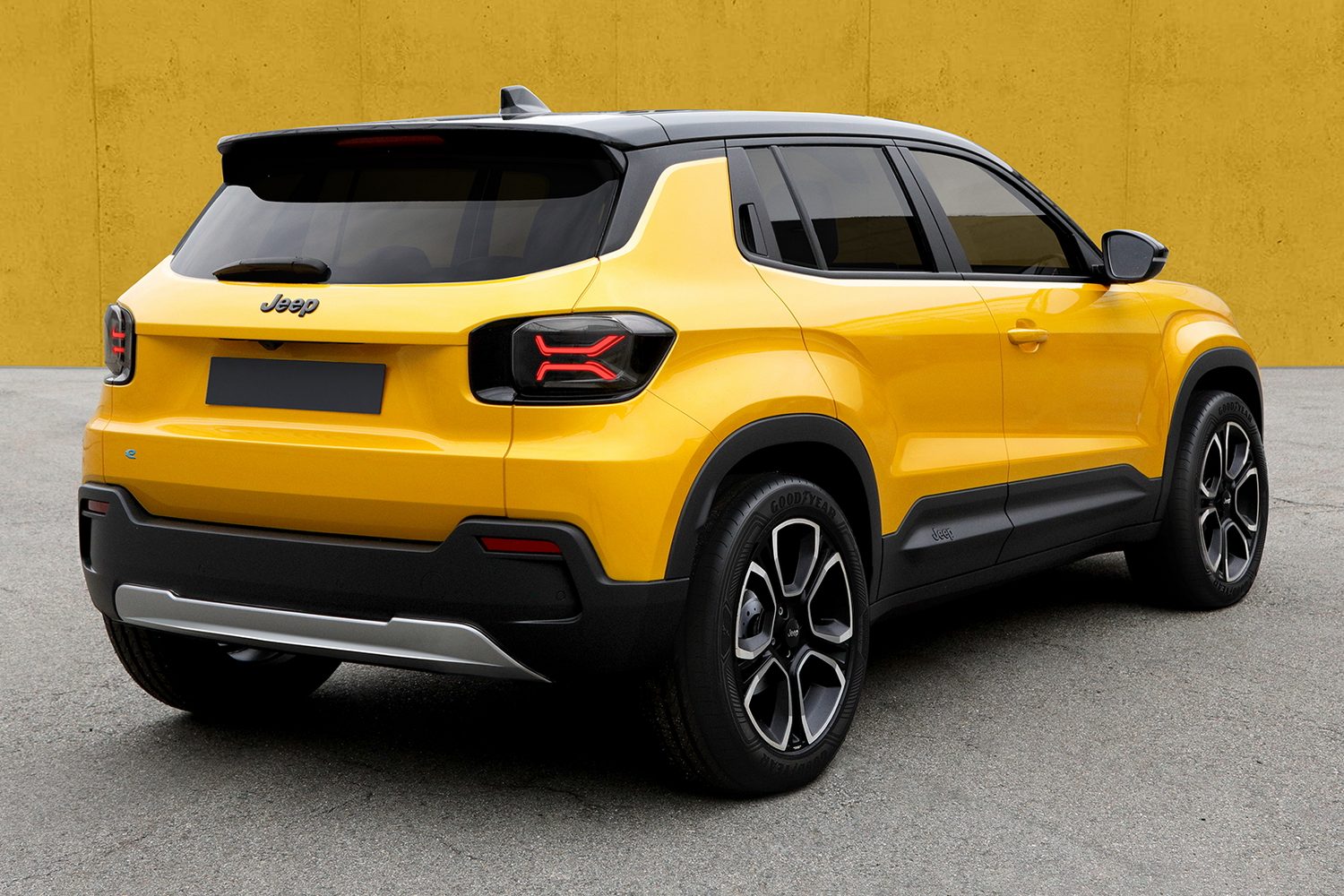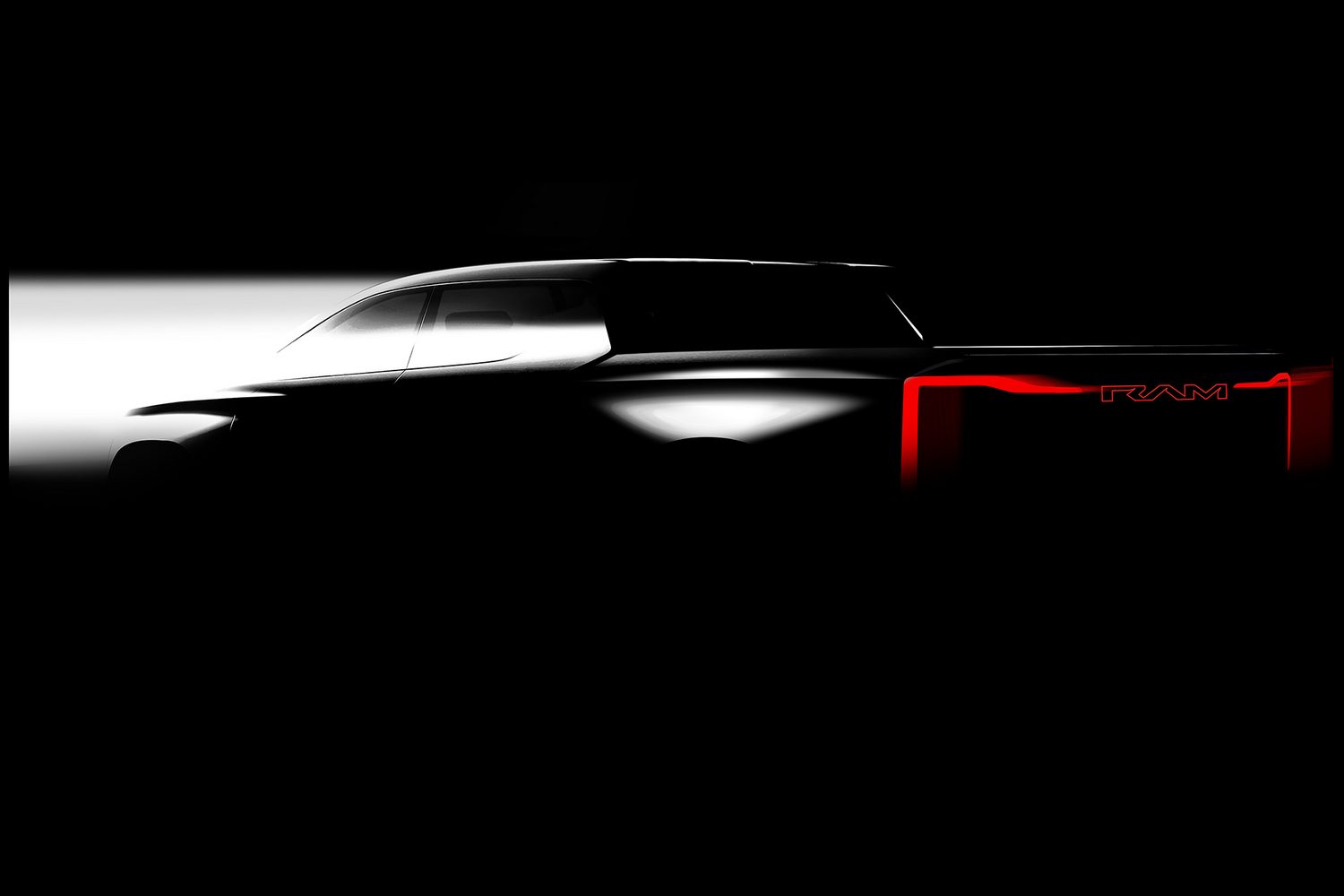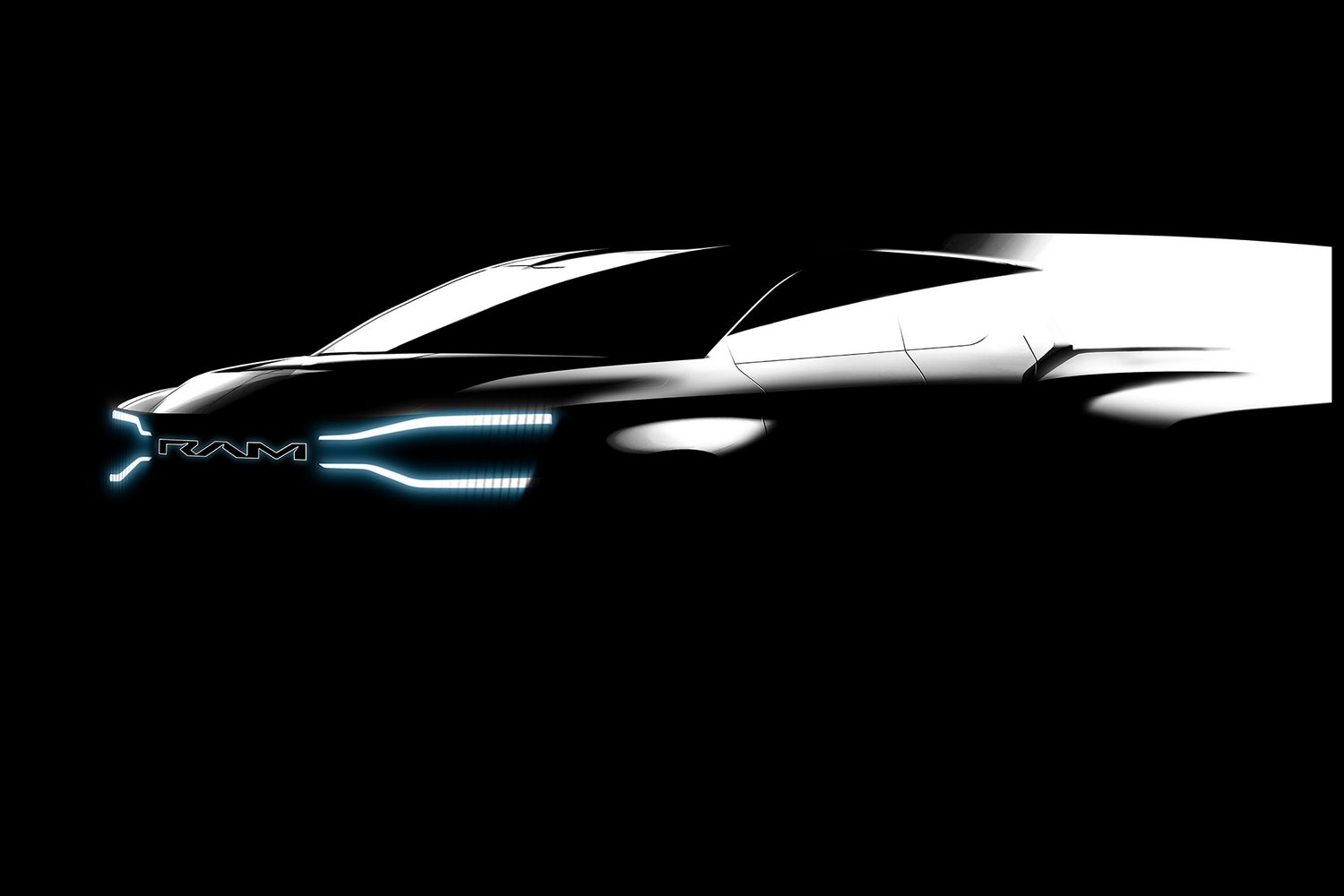Jeep has revealed the design for its first all-electric model due for launch in 2023 and its design suggests that it is set to sit a segment below the firm's current smallest SUV, the Renegade.
The as-yet-unnamed model draws on a lot of traditional Jeep styling cues such as chunky looks and a seven-slot grille, but overall, has a smoother, less upright look than any Jeep that has gone before. The grille, is, in fact, blanked off for greater aerodynamic efficiency, while the windscreen sits at a shallower rake than other models.
Given the size of the vehicle, it will likely sit on the familial Stellantis e-CMP platform shared with the Peugeot 208, 2008, Opel Corsa and their electric equivalents. It isn't fully clear, however, whether this platform can accommodate four-wheel drive, up until now at least, a prerequisite for any new Jeep model. Using the same running gear and 50kWh battery as the Peugeot e-2008, the electric Jeep could, in theory, manage around 300km between charges.
The announcement came as part of the yearly earnings presentation by Stellantis, the umbrella company that covers brands such as Peugeot, Opel, Fiat, Citroën and Jeep. Speaking at the presentation, the company's boss, Carlos Tavares said:
"Electrification will amplify Jeep's core attributes. This new model will launch during the first half of next year and is the first of a comprehensive fully-electric Jeep line-up that will cover every SUV segment by 2025."
A battery-electric Jeep isn't entirely unexpected though, as the brand's head, Christian Meunier, announced last year at the firm's 80th anniversary celebrations that there would be "a fully emissions-free Jeep in every segment by 2025".
Dare 2030
Stellantis has also launched a new corporate strategy, Dare 2030, a process that, it plans, will see its carbon footprint cut by 50 per cent by 2030. The company has already committed to stop launching new internal-combustion models in Europe by 2026, and Dare 2030 promises to make Alfa Romeo, DS, Lancia and Maserati all-electric brands by 2025. Stellantis hopes to have at least 75 battery-electric models on its books by 2030 and, long term, to become a carbon net zero company by 2038.
All going according to plan, Stellantis aims to sell five million electric cars annually by 2030 with 100 per cent of its sales mix in Europe being battery-powered and at least 50 per cent of the cars and light-duty trucks in the United States being similarly electrified.




